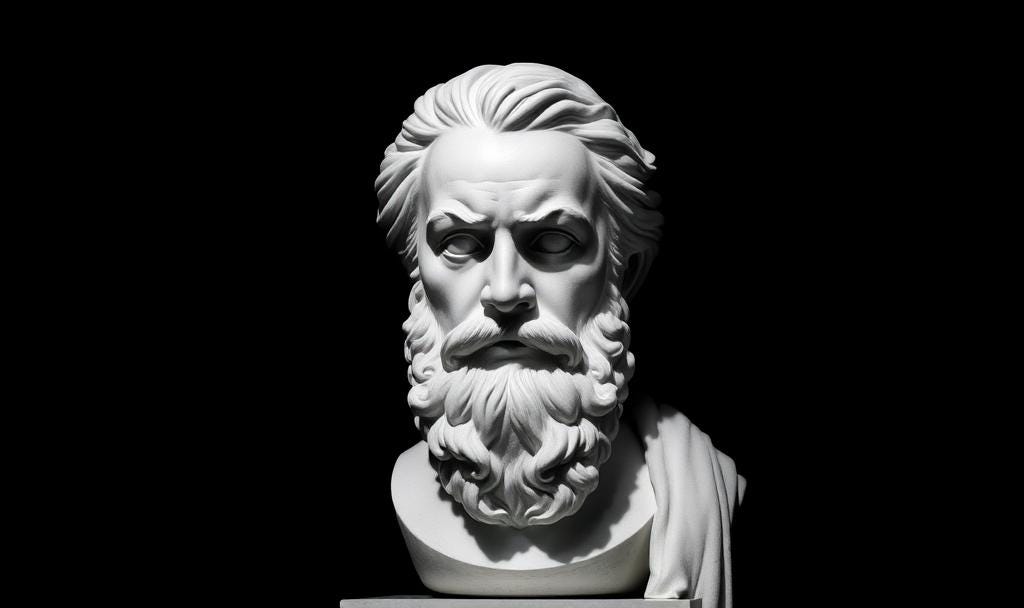From an early age, we are exposed to death. Either we start seeing animals, insects, other living organisms die, or we experience the loss of someone linked to our circle. We become aware of death early on, but we do not necessarily process our own mortality. I would even go as far as saying that most people do not process their mortality throughout their lifetime and are more likely to process the mortality of others than their own. Consequently, those people may go about their lives as if they are immortal, not saying things they want to say and not doing things they want to do — all by the promise of tomorrow. They exist in the “rat race” blissfully pushing aside the fact that we are all going to die one day.
In Socrates’ last days, according to Plato’s Dialogues, Socrates has a conversation with his friend Crito. Crito is visiting Socrates in his cell, after Socrates has been wrongfully jailed, tried, and found guilty of impiety and corruption of the youth (among other things). He is to be put to death the day that Crito visits with the intention of helping him escape. When he arrives, Crito observes Socrates peacefully sleeping, and wonders how his friend can be doing so given the circumstances. When he wakes, Crito attempts to convince Socrates to escape and seek refuge far from Athens, and Socrates rejects the offer, citing his lifelong adherence to the laws of Athens. Then, they engage in one last dialogue.
What stood out most to me about that conversation, however, is that Socrates, in mentioning his impending murder, gives a profound perspective on death. He explains that the way he sees it, there are two possibilities for “the afterlife”:
Imagine the biggest exhaustion you have ever experienced, and then imagine having an eternal, dreamless rest. This is the first possibility.
The second possibility is that we transition into a different realm where the soul can exist free from the constraints of the body, and we may encounter other pure souls from the past.
Reflect for a moment that Plato’s dialogues were written around 399 BC, and that makes his perspective that much more interesting, from a theological perspective.
“For the fear of death is indeed the pretense of wisdom, and not real wisdom, being a pretense of knowing the unknown; and no one knows whether death, which men in their fear apprehend to be the greatest evil, may not be the greatest good.” - Plato, The Trial and Death of Socrates
Reading Socrates’ theory of death alleviated much of the anxiety that I felt about my own mortality because neither possibility sounds awful. In fact, growing up as a Christian, the possibility of going to Hell and suffering for eternity sounded much more terrible, but that is a topic for another day. As Socrates suggests, it is absurd to fear the unknown. So, what if we accept Socrates’ view on death? Is that sufficient to lose our fear of death? Not quite.
Many people do not necessarily fear death itself, but they avoid the topic as a whole because it is painful to consider life after a loss. Others worry about the painful circumstances surrounding death. The mind reasons that this avoidance of facing death is a way of protecting us, and the avoidance makes us behave in a different way than we would if we kept death — whether our own or that of a loved one — present as a way of making the most of time. People may briefly focus on the different ways one can die or have reminders of mortality when “so-and-so” dies. They ponder about the way they would react to such a loss, such a pain, but ultimately move on after a few weeks and the world keeps turning.
The truth of the matter is that if we accept death and keep it present, we may be capable of leading a very different life where we truly seize the day and stop taking others for granted. Our behavior shifts.
Memento Mori






Memento mori hits differently. It’s like a reminder to live with intention, because time doesn’t wait. Thanks for sharing!